Related Research Articles

Ludwig Josef Johann Wittgenstein was an Austrian philosopher who worked primarily in logic, the philosophy of mathematics, the philosophy of mind, and the philosophy of language.
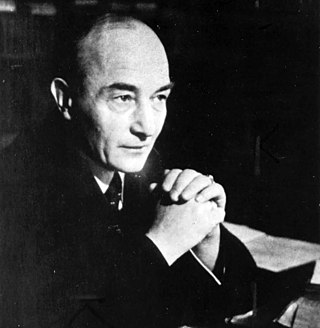
Robert Musil was an Austrian philosophical writer. His unfinished novel, The Man Without Qualities, is generally considered to be one of the most important and influential modernist novels.
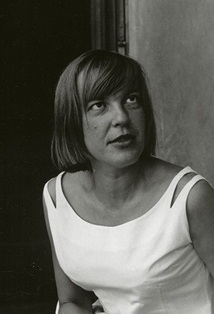
Ingeborg Bachmann was an Austrian poet and author. She is regarded as one of the major voices of German-language literature in the 20th century. In 1963, she was nominated for the Nobel Prize in Literature by German philologist Harald Patzer.

Hugo Laurenz August Hofmann von Hofmannsthal was an Austrian novelist, librettist, poet, dramatist, narrator, and essayist.

Friedrich Albert Moritz Schlick was a German philosopher, physicist, and the founding father of logical positivism and the Vienna Circle.

The Vienna Circle of logical empiricism was a group of elite philosophers and scientists drawn from the natural and social sciences, logic and mathematics who met regularly from 1924 to 1936 at the University of Vienna, chaired by Moritz Schlick. The Vienna Circle had a profound influence on 20th-century philosophy, especially philosophy of science and analytic philosophy.
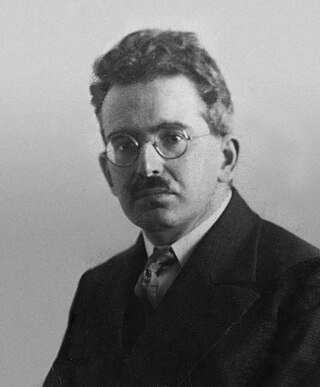
Walter Bendix Schönflies Benjamin was a German-Jewish philosopher, cultural critic, media theorist, and essayist. An eclectic thinker who combined elements of German idealism, Romanticism, Western Marxism, Jewish mysticism, and neo-Kantianism, Benjamin made influential contributions to aesthetic theory, literary criticism, and historical materialism. He was associated with the Frankfurt School and also maintained formative friendships with thinkers such as playwright Bertolt Brecht and Kabbalah scholar Gershom Scholem. He was related to German political theorist and philosopher Hannah Arendt through her first marriage to Benjamin's cousin Günther Anders, though the friendship between Arendt and Benjamin outlasted her marriage to Anders. Both Arendt and Anders were students of Martin Heidegger, whom Benjamin considered a nemesis.

Stefan Anton George was a German symbolist poet and a translator of Dante Alighieri, William Shakespeare, Hesiod, and Charles Baudelaire. He is also known for his role as leader of the highly influential literary circle called the George-Kreis and for founding the literary magazine Blätter für die Kunst.

Sir Ernst Hans Josef Gombrich was an Austrian-born art historian who, after settling in England in 1936, became a naturalised British citizen in 1947 and spent most of his working life in the United Kingdom.

Fritz Mauthner was an Austrian philosopher and author of novels, satires, reviews and journalistic works. He was an exponent of philosophical scepticism derived from a critique of human knowledge and of philosophy of language.

New Poems is a two-part collection of poems written by Bohemian-Austrian poet and novelist Rainer Maria Rilke (1875–1926). The first volume, dedicated to Elisabeth and Karl von der Heydt was composed from 1902 to 1907 and was published in the same year by Insel Verlag in Leipzig. The second volume, dedicated to Auguste Rodin, was completed in 1908 and published by the same publisher. With the exception of eight poems written in Capri, Rilke composed most of them in Paris and Meudon. At the start of each volume he placed, respectively, Früher Apollo and Archaïscher Torso Apollos, poems about sculptures of the poet-God.

Modernist literature originated in the late 19th and early 20th centuries, and is characterised by a self-conscious separation from traditional ways of writing in both poetry and prose fiction writing. Modernism experimented with literary form and expression, as exemplified by Ezra Pound's maxim to "Make it new." This literary movement was driven by a conscious desire to overturn traditional modes of representation and express the new sensibilities of the time. The immense human costs of the First World War saw the prevailing assumptions about society reassessed, and much modernist writing engages with the technological advances and societal changes of modernity moving into the 20th century. In Modernist Literature, Mary Ann Gillies notes that these literary themes share the "centrality of a conscious break with the past", one that "emerges as a complex response across continents and disciplines to a changing world".

The Wiener Moderne or Viennese Modernism is a term describing the culture of Vienna in the period between approximately 1890 and 1910. It refers especially to the development of modernism in the Austrian capital and its effect on the spheres of philosophy, literature, music, art, design and architecture.
Max Rychner - was a Swiss writer, journalist, translator, and literary critic, writing in German. Hannah Arendt called him "[O]ne of the most educated and subtle figures in the intellectual life of the era"

Rudolf Pannwitz was a German writer, poet and philosopher. His thought combined nature philosophy, Nietzsche, an opposition to nihilism and pan-European internationalism:
Pannwitz's elusive, difficult goal may be seen as the complete re-evaluation of man, art, science and culture envisaged as the expression of an evolving cosmos obeying the laws of eternal recurrence, with Nietzsche-Zarathustra as the supreme prophet.
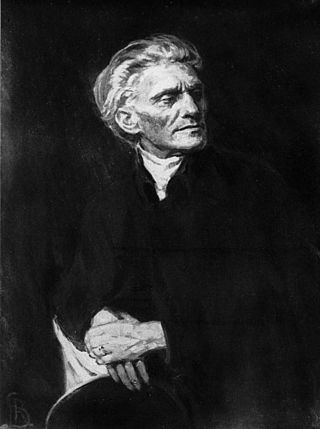
The George-Kreis was an influential German literary group centred on the charismatic author Stefan George. Formed in the late 19th century, when George published a new literary magazine called Blätter für die Kunst, the group featured many highly regarded writers and academics. In addition to sharing cultural interests, the circle reflected mystical and political themes within the sphere of the Conservative Revolutionary movement. The group disbanded when George died in December 1933.
The Book of Hours is a collection of poetry by the Bohemian-Austrian poet and novelist Rainer Maria Rilke (1875–1926). The collection was written between 1899 and 1903 in three parts, and first published in Leipzig by Insel Verlag in April 1905. With its dreamy, melodic expression and neo-Romantic mood, it stands, along with The Lay of the Love and Death of Christoph Cornet, as the most important of his early works.

Rudolf Borchardt was a German essayist, poet and cultural historian. He is perhaps best known for translating Dante's Divine Comedy into his own type of German language. Ernst Schmidt called Borchardt "one of the most problematic figures in early twentieth-century European cultural history" and "one of Germany's finest poets."
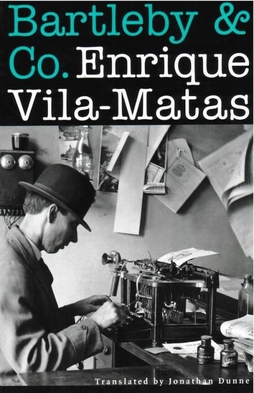
Bartleby & Co. is a 2000 novel by the Spanish writer Enrique Vila-Matas.
Joseph Petzoldt was a German positivist philosopher and teacher. He is known as the founder of several societies aimed at advancing positivist philosophy in the scientific world, and was an early proponent of the theory of relativity which he interpreted on the basis of his philosophy of "relativistic positivism".
References
- ↑ The Lord Chandos Letter, Hugo von Hofmannsthal, 1902.
- ↑ Wellberry, David E., (ed.) A New History of German Literature, Cambridge, MA: The Belknap P of Harvard UP, 2004. 652–658.
- ↑ Wellberry, David E., (ed.) A New History of German Literature, Cambridge, MA: The Belknap P of Harvard UP, 2004. 652–658.
- ↑ Wellberry, David E., (ed.) A New History of German Literature, Cambridge, MA: The Belknap P of Harvard UP, 2004. 652-658.
- ↑ Kobel, Erwin. Hugo von Hofmannsthal, Berlin: De Gruyter, 1970.
- ↑ Kovach, Thomas A. (ed.) A Companion to the Works of Hofmannsthal, Rochester, NY: Camden House, 2002. 88–89.
- ↑ Kovach, Thomas A. (ed.) A Companion to the Works of Hofmannsthal, Rochester, NY: Camden House, 2002. 91.
- ↑ Kovach, Thomas A. (ed.) A Companion to the Works of Hofmannsthal, Rochester, NY: Camden House, 2002. 89.
- ↑ Jacques Le Rider, Modernity and crises of identity: culture and society in fin-de-siècle Vienna trans. Rosemary Morris. Continuum, 1993. ISBN 0 8264 0631 9